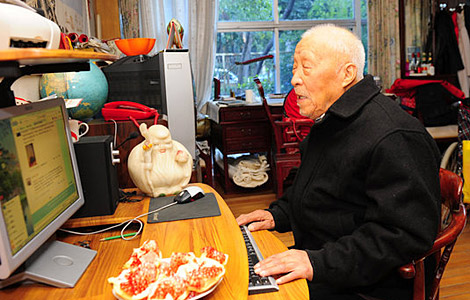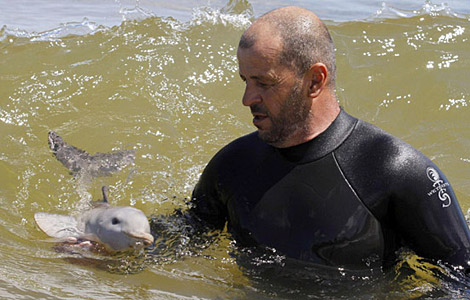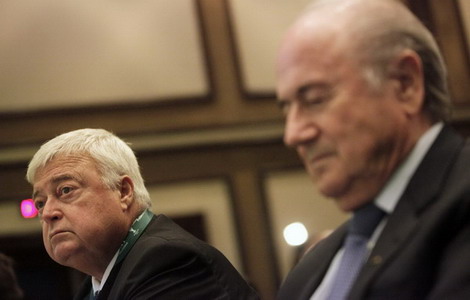China fights graft in infrastructure projects
Updated: 2011-10-18 16:48
(Xinhua)
|
|||||||||||
BEIJING - Despite persistent campaigns in recent years and tough penalties, China's anti-graft agencies have warned that corruption in infrastructure projects remains a significant problem.
Last week, Wu Rijing, a former chairman and general manager of the state-owned Guangdong Xinguang International Group, stood trial at a local court in Guangdong province for charges of taking 26.4 million yuan ($4.14 million) in bribes, offering bribes worth 1.08 million, and embezzling more than 46.8 million yuan of public money.
Prosecutors say all his crimes occurred when Wu was in charge of subcontracting construction projects between 2006 to 2008.
Over the first eight months of this year, about 6,800 officials have been prosecuted for corruption in infrastructure projects across the country, according to last month's statement from the Communist Party of China (CPC) Central Commission for Discipline Inspection (CCDI), the country's key anti-graft agency.
Local prosecutors, closely involved in corruption investigations, discovered that bribery has become a regular part in many contractors' budget as "public relations expenses."
"In most cases, bribes might take up 5 to 10 percent of the total cost of a project," said a city prosecutor in Jiangxi province who asked to remain anonymous.
A bribe may top 1 million yuan if a project is estimated to cost 20 million yuan, he said.
Given that the nation has spent a huge amount of money on infrastructure development in recent years, the amount of money implicated in graft cases has notably increased.
In a nationwide campaign from September 2009 to March, prosecutors uncovered graft cases in this sector involving more than 2.99 billion yuan, according to the Ministry of Supervision.
Bribery occurs in many aspects related to infrastructure projects, including land-use approval, project management, public bidding, the purchase of construction materials and equipment, and project inspections, said Zhang Xin, a provincial prosecutor in Jilin province.
Besides accepting outright cash, officials receive gift cards, dividends, overseas tour packages, school tuition for their children, houses and luxury goods, Zhang said.
Prosecutors also have found that chief officials in government departments or state-owned enterprises related to infrastructure development are very suseptible to corruption.
Since March 2007, ten senior officials in Jiangxi's provincial transport department have been sacked due to corruption, including Pu Rixin, the department's former director, who was charged in June with taking bribes amounting to 4.23 million yuan.
Liu Zhongji, former president and general manager of a state-owned construction firm in Jilin, was sentenced to 18 years in prison last year for accepting 3.02 million yuan in bribes.
Lack of effective supervision enables chief officials to misuse their power, Zhang said.
In recent years, the government has stepped up efforts to crack down on corruption in construction projects.
Infrastructure projects have been one of the four priorities of the country's discipline supervision work, said He Guoqiang, head of the CCDI, at a meeting last month.
Anti-graft agencies need closer cooperation with the government financial supervision and auditing agencies, Zhang said.
They should set up an information-sharing platform or data bank and blacklist contractors involved in graft cases in order to stop them from bidding for other projects, Zhang said.
Anti-graft agencies also expect stepped-up reform of construction project management and increased supervision of chief officials.
Hot Topics
Libya conflict, Gaddafi, Oil spill, Palace Museum scandal, Inflation, Japan's new PM, Trapped miners, Mooncake tax, Weekly photos, Hurricane Irene
Editor's Picks

|

|

|

|

|

|







